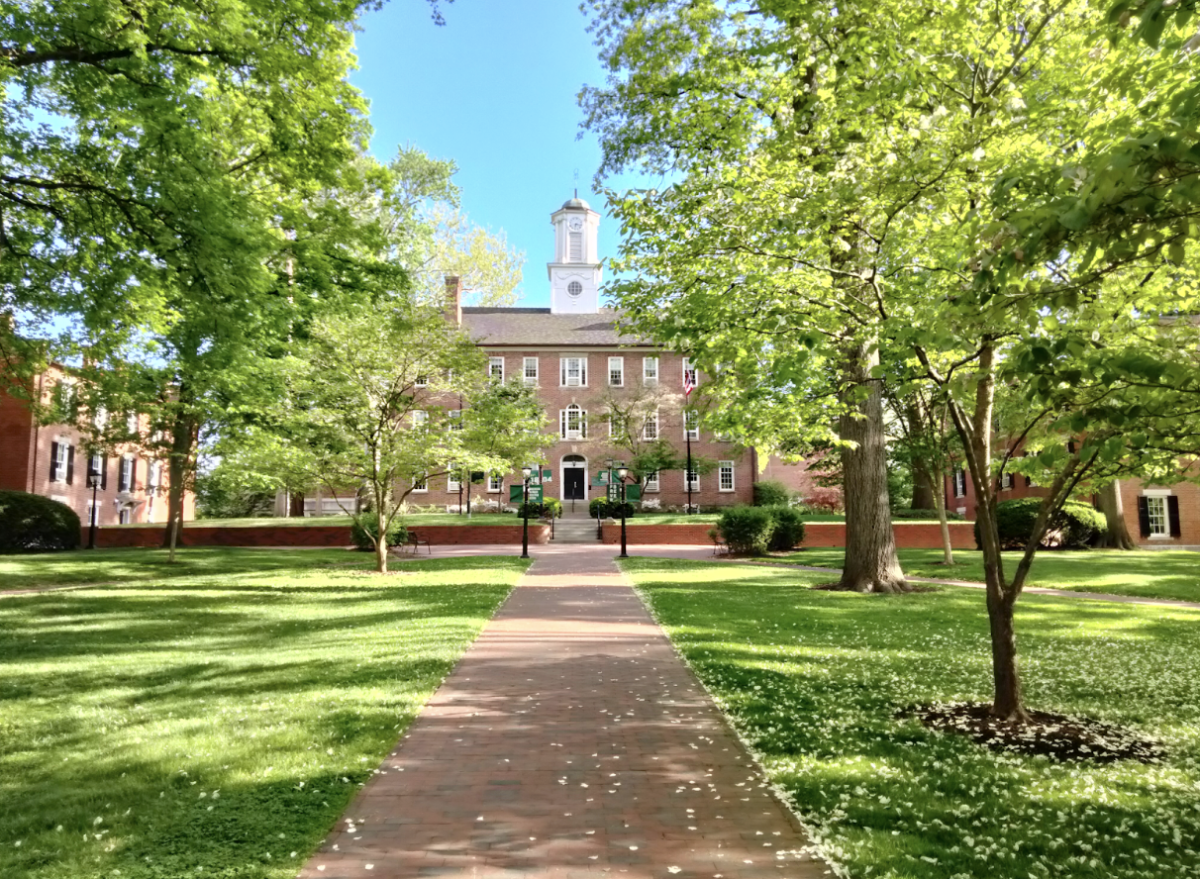As per Connecticut law, each student is required to take one year of world language. Through Fairfield Public high schools, students may fulfill that requirement by taking classes in Spanish, French, Latin, Italian, Mandarin, or American Sign Language (ASL). Yet according to the Pew Research Center, throughout the United States, only about 20% of the school age population are studying a foreign language. Accordingly, only 20% of Americans are bilingual in the U.S., per the Washington Post.
This is setting American teenagers behind. According to Forbes, people who are bilingual are more likely to get a raise at their jobs. Additionally Alzheimer’s researchers in the UK found that people who are bilingual can see around a 4.5 year delay in the onset of the disease’s complications. Yet despite these clear benefits, world language is still viewed as a credit requirement, or asset for college applications, rather than for its ability to broaden our horizons, and open up new opportunities.
In order to better understand what the U.S. gets wrong about World Language, I spoke with Megan Strauss, a Spanish and culture teacher at Fairfield Ludlowe High School. To her, “there is not as much motivation” in the United States. She noted that English has become the “power language” in the world, leading to many Americans not choosing to learn a second language.
When asked about how the United States can improve its system for teaching students, Strauss stressed the importance of a “real-world based” curriculum that is “all-speaking.” In terms of learning a language, she says “if you are not fully immersed, it’s not enough.” However, here in Fairfield, there is no requirement that classes are taught all in the target language. Moreover, curriculums are far from practical, often stressing obscure concepts of vocabulary rather than how to communicate with other people or live in a foreign country.
Later in our interview, I asked Strauss what the rest of the world gets right compared to the United States. Luckily, she was the perfect person to answer that question. After passing the AP Spanish exam and taking Spanish throughout high school, she left for Guatemala for eight weeks to be spent helping to teach English, live with a host family, and go to four-hour-a-week tutoring sessions each day. In Guatemala, she says, there is “no time to mess around.” English classes were taught in a “more simplified context” to prepare students for interactions in English for a job, or just for life. After her time in Guatemala, she was waved into the highest level of Spanish at her college.
To close our conversation, I asked her about the importance of learning a new language today. Besides being “such a value for so many jobs,” Strauss told me that “it is never a bad thing to know more, knowledge is power.” She said, “I have never had someone react to me poorly when I’ve spoken to them in Spanish or Arabic.” Yet what she emphasized most of all was that “the biggest impediment is embarrassment,” and that “you are going to make mistakes, but you have to put yourself out there.”
For many students at Ludlowe, world language is nothing more than a class they have to take, not one they want to. But whether they want to learn a language or not, the benefits of learning a new language are clear. Even today in a world where each and every phrase may be translated real time on our phones, the connections we may be able to make with others are essential to our growth.
It is my belief – as someone who cannot speak two languages, yet wishes to be able to – that greater emphasis must be placed on world language in this country. The standards for education must change. Each and every class must be fully immersed in the target language. We must change our curriculum to make it more practical and useful for those hoping to use the language. In essence, we must change how we think about world language.
As a nation, we have been left in the dust by the rest of the world. In America, everything is in English, despite the fact that there is no official language in the United States. We force each person in this country to learn our language and culture without even thinking twice about theirs. If we are truly the multicultural nation that we claim to be, our educational system should reflect that. As a nation, we must ensure that future generations are given the best opportunities in their future to grow and connect with all people.



![[Charlie Kirk] by [Gage Skidmore] is licensed under [CC BY-SA 2.0].](https://flhsprospect.com/wp-content/uploads/2025/09/charlie-kirk-article-1200x800.jpg)




